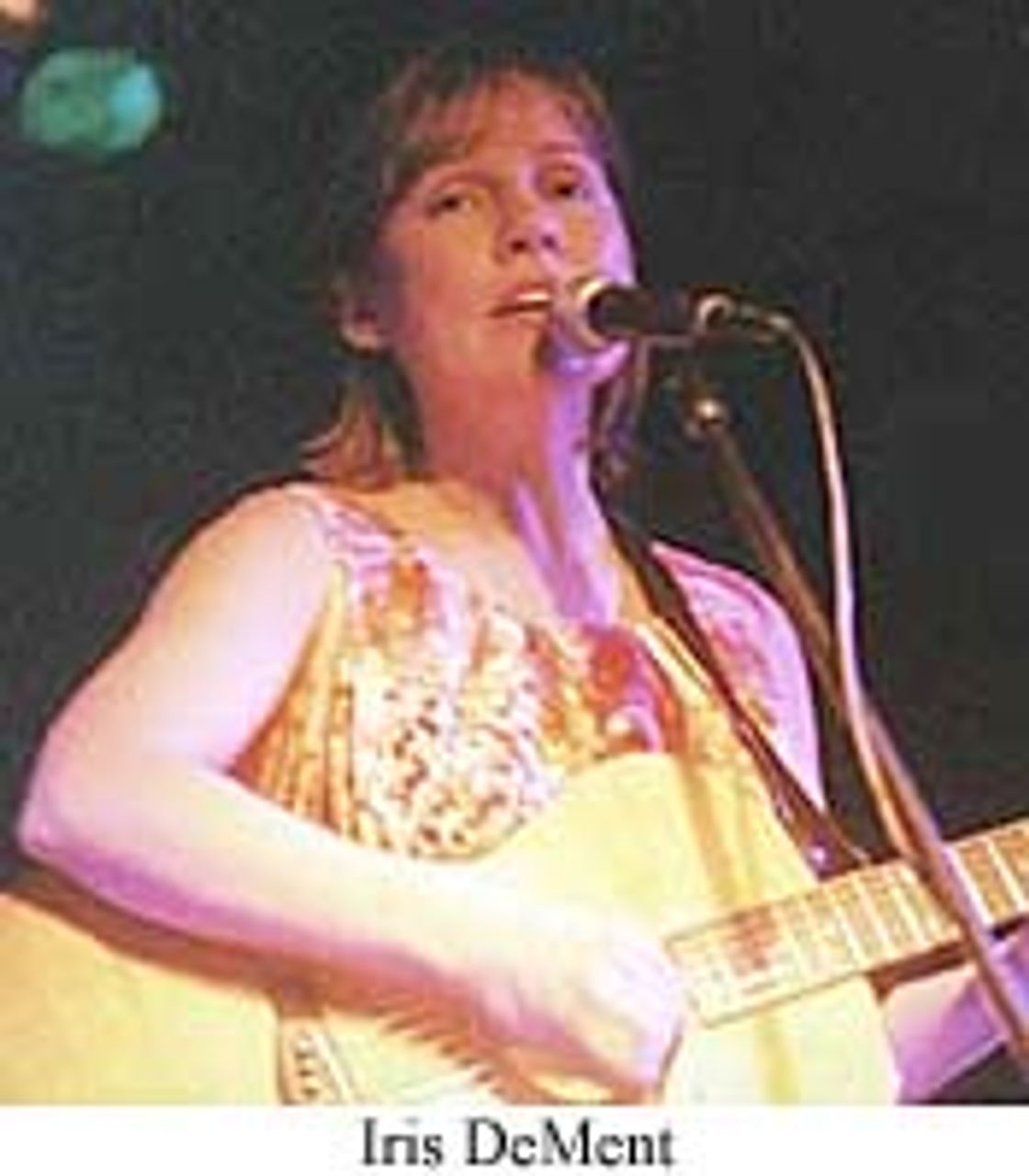 The recent six-concert tour to Australia by Iris DeMent provided the first opportunity for Australian audiences to hear firsthand this outstanding acoustic folk and country music performer.
The recent six-concert tour to Australia by Iris DeMent provided the first opportunity for Australian audiences to hear firsthand this outstanding acoustic folk and country music performer.
DeMent, arguably one of the most important signer/songwriters to have emerged in this field in the last decade-and-a-half, has been described by Merle Haggard as “the greatest singer I have ever heard.”
In stark contrast to the vast number of bland and superficial songs churned out by the multimillion-dollar country music industry, DeMent’s songs are direct, honest and deeply personal commentaries on the issues facing ordinary working people. Love, family life, death of loved ones, forgiveness and the warmth of human companionship are constant themes in DeMent’s songs.
Such subjects, of course, are common to all popular music, but the emotional richness of DeMent’s singing, the simple lyricism of her poetry, underpinned by the deep musical tradition of Loretta Lynn, the Carter Family, Jimmie Rodgers and Southern gospel music, transform these everyday themes into profoundly moving comments on society and the human condition in general.
DeMent’s affinity with working people is not some affectation. Born on January 5, 1961 in rural Arkansas, the youngest of 14 children, DeMent has known hard times much of her life. The devoutly religious DeMent family were farmers, but economic difficulties forced them off of the land. Iris’s father Patrick took up factory work in the local town of Paragould. In 1964, after a year of determined, but unsuccessful, attempts by her father and other workers to organise a union at the plant, the family moved to California.
Her initial musical training was provided by her family and the church. Upon graduating from high school she moved to Kansas City. She took up song writing seriously when she turned 25 and sang at various open mike sessions at local clubs. In 1988 she moved to Nashville where she secured a recording contract.
In 1992 she released her first album, Infamous Angel, to much critical acclaim. Within a year Warner Brothers Records bought up her contract with Philo Records and rereleased the CD. Two other albums, My Life (1994) and The Way I Should (1996)—and more praise—have followed.
A small measure of the respect DeMent commands is indicated by the musicians from a broad range of musical streams who assisted in the production of The Way I Should. This included talented country harmonica player and vocalist Delbert McClinton, blues guitarist Lonnie Mack, bluegrass great Earl Scruggs, rock guitarist Mark Knopfler from Dire Straits, and others.
At The Basement in Sydney on April 11, DeMent, in a solo concert lasting more than an hour and half, presented a selection of songs from all three albums. This included: “Mama’s Opry,” “Easy’s Getting Harder Every Day,” “No Time to Cry,” “Infamous Angel,” “My Life,” “Let the Mystery Be,” “Sweet Forgiveness,” “Our Town,” “When My Mornin’ Comes Around,” “Walking Home,” “Let To Mom” and “Wasteland of the Free,” as well as Jimmie Rodgers’ “Hobo Bill’s Last Ride” and John Prine’s “Mexican Home.”
DeMent told her Sydney audience that she was deeply shocked by the sacking of Australian waterside workers. To loud applause, she said she was angered by the fact that companies and corporations were able to move money and resources anywhere round the world, but court injunctions could be used to try and prevent workers organising internationally.
When listening to Iris DeMent one makes a direct connection to all that is genuine, compassionate and humane in the rich heritage of American country and traditional music. It is now two years since DeMent’s “Wasteland of the Free” and its biting condemnation of a society where “the poor are considered the enemy.” One senses that DeMent’s cautious, but determined confidence in humanity, her honest devotion to the cause of working men and women, and her acute artistic sensitivity and creative skills will be even more powerfully expressed in future recordings.
